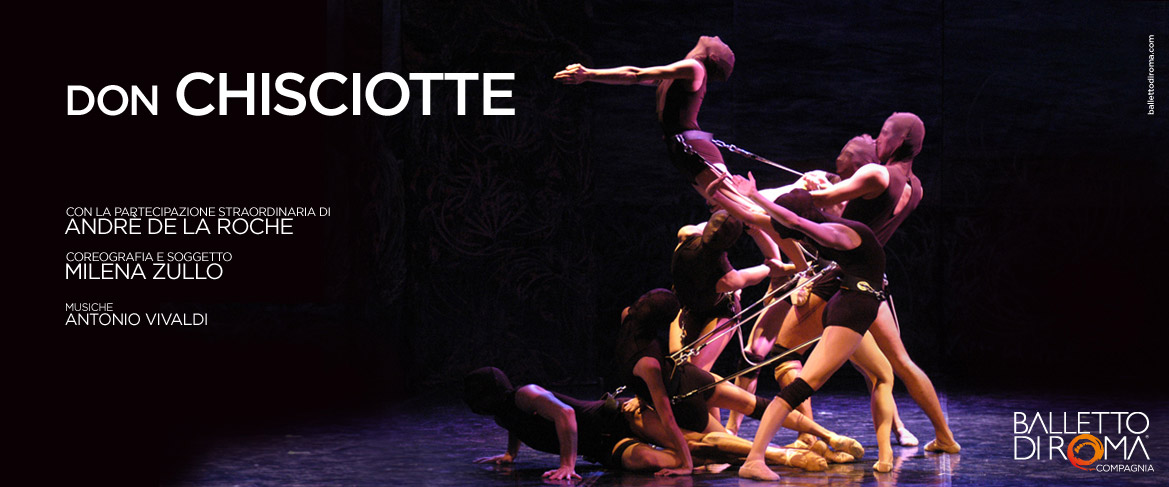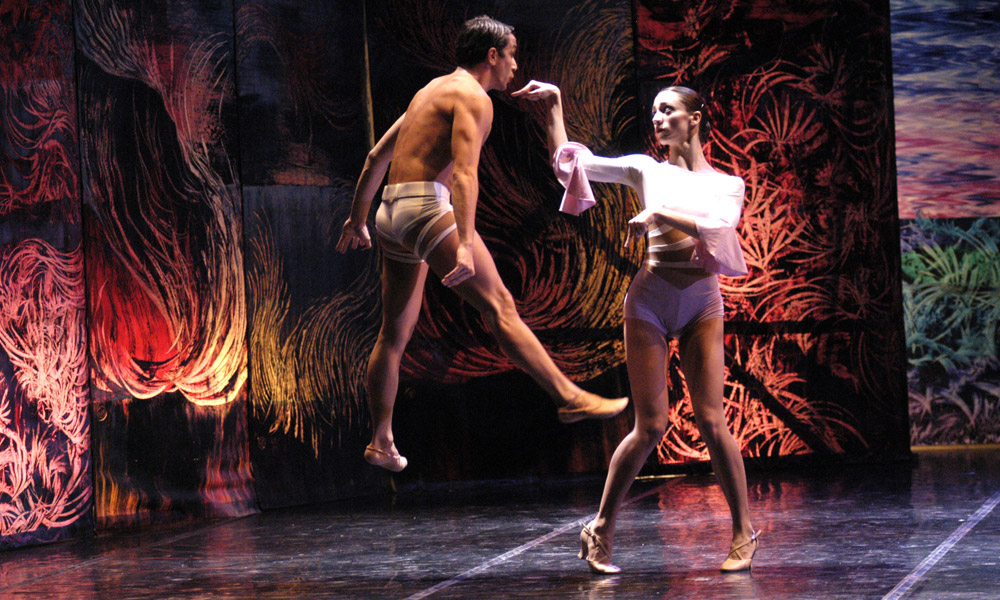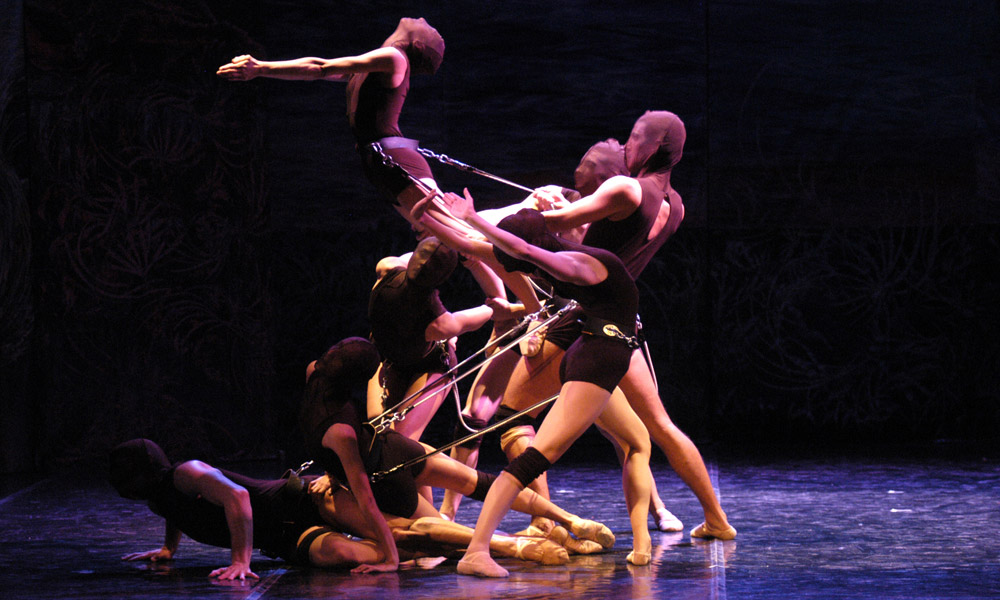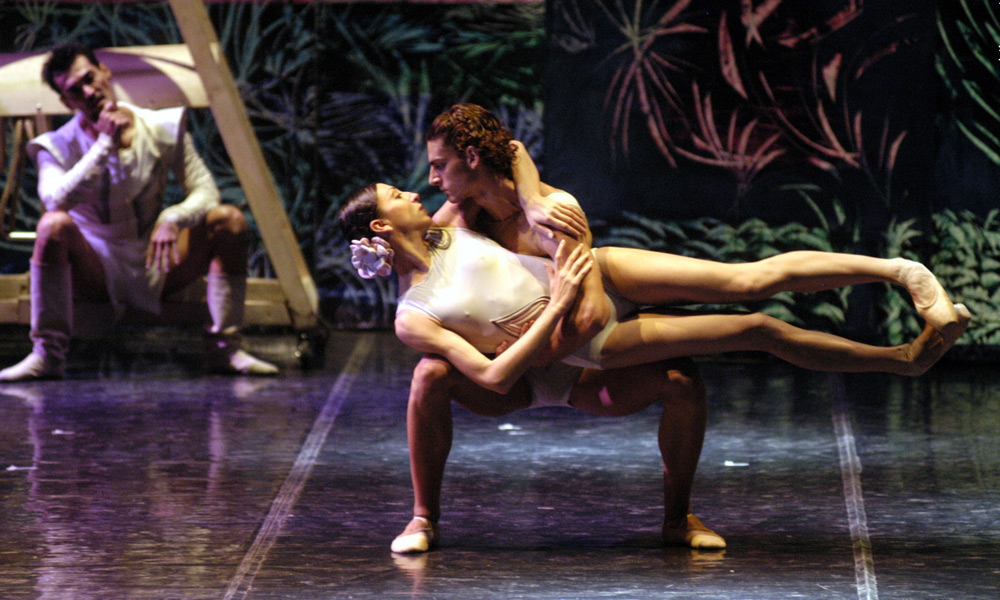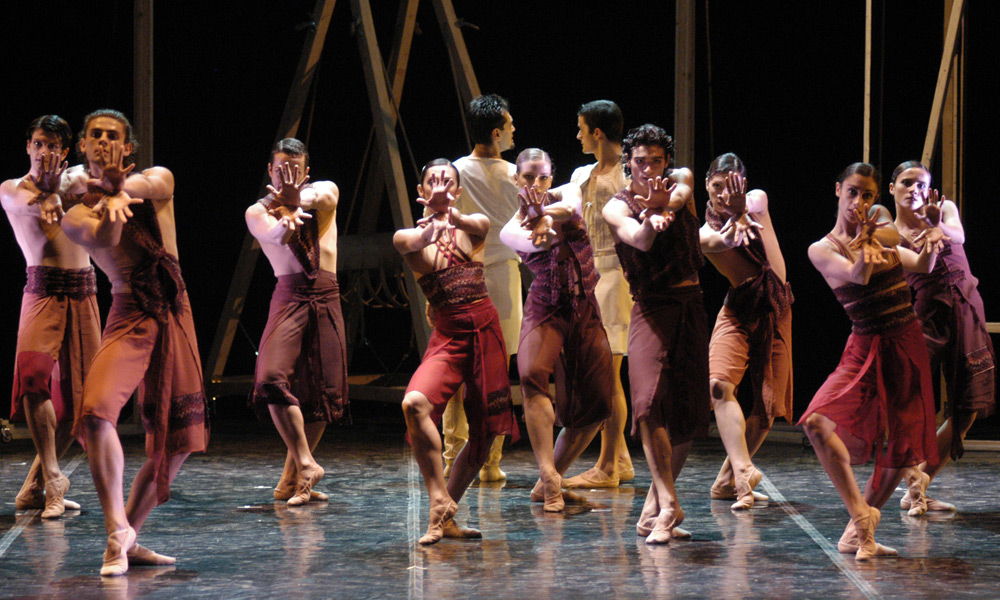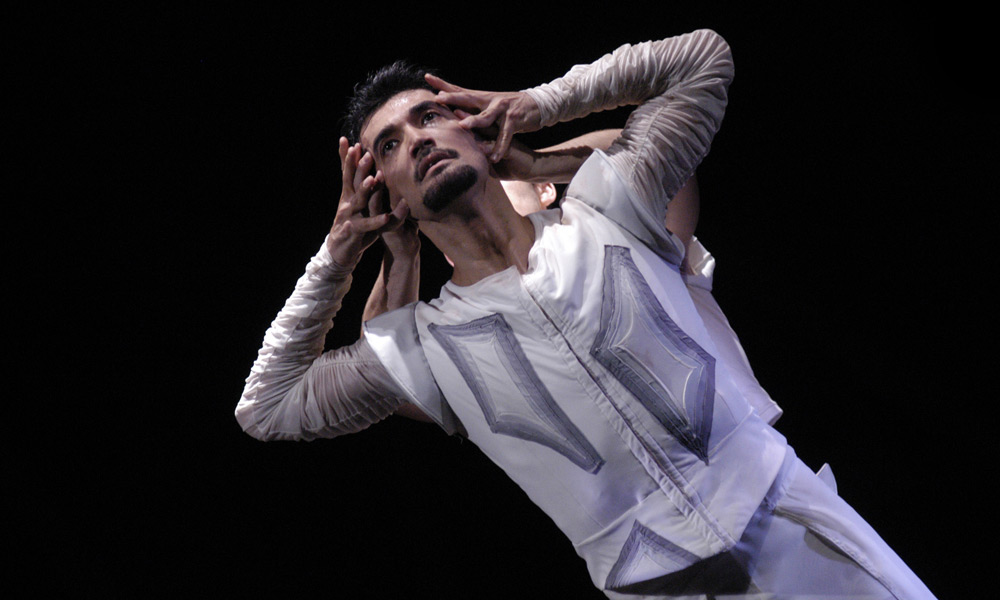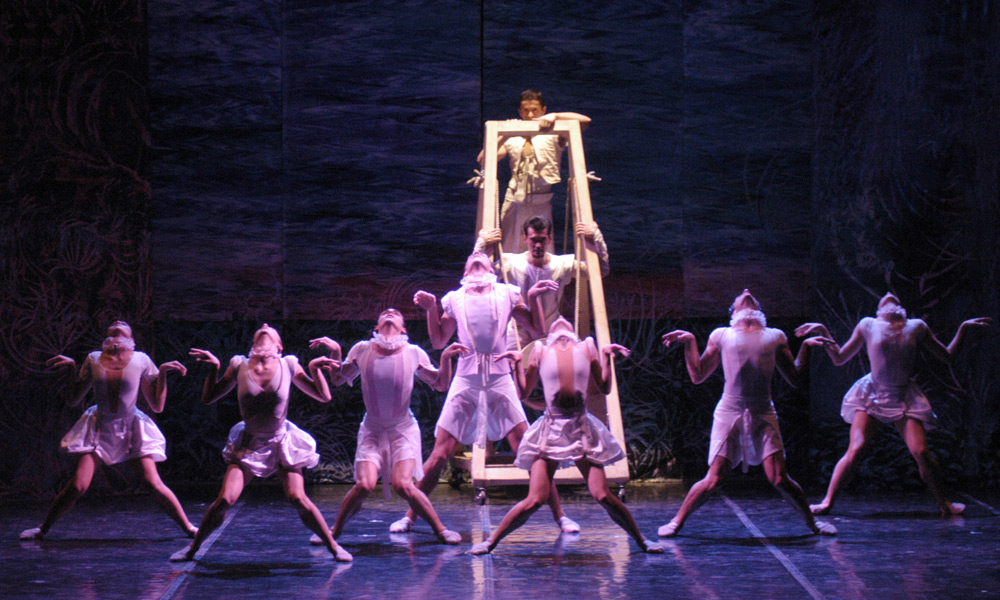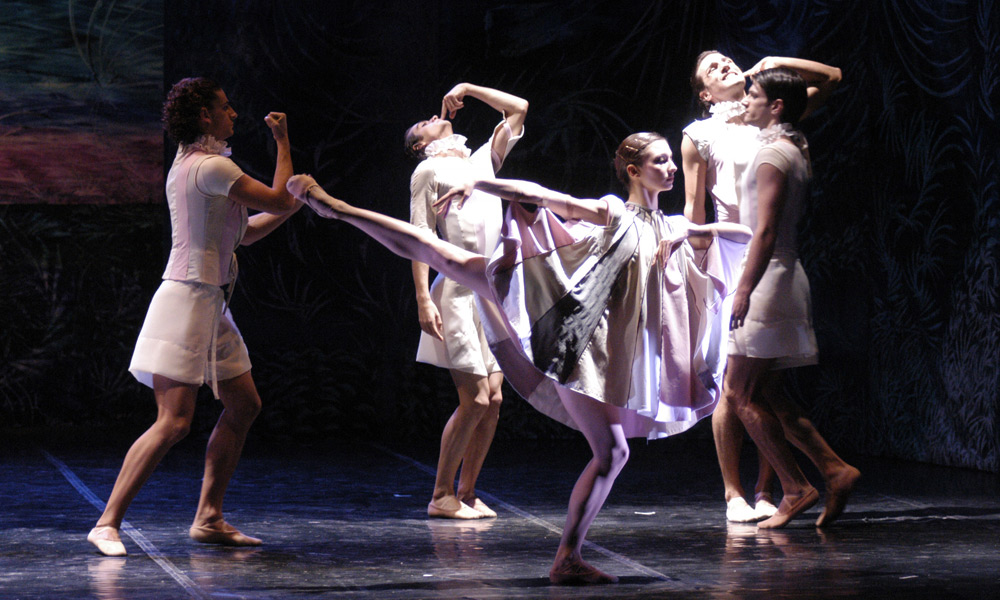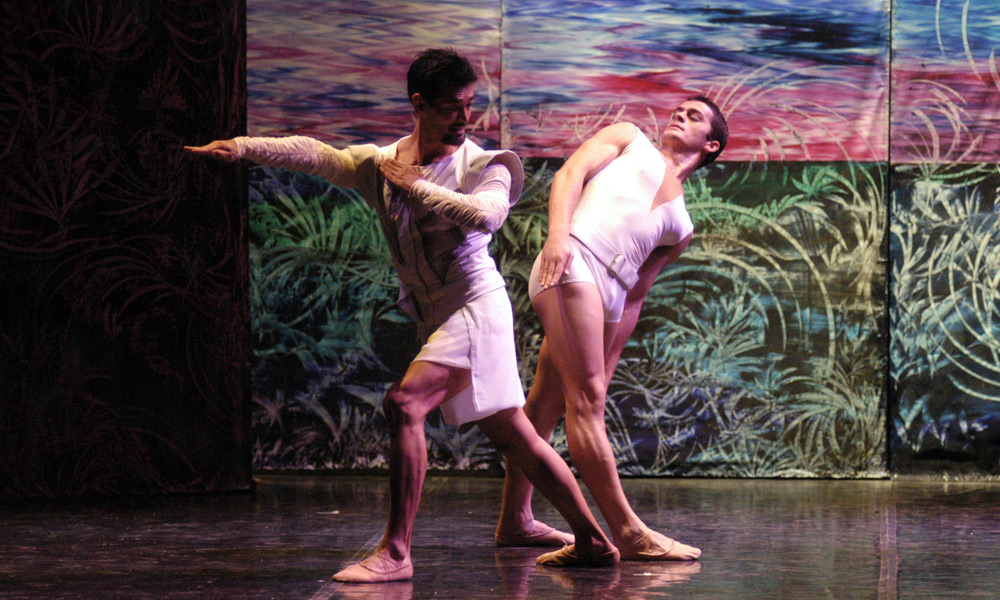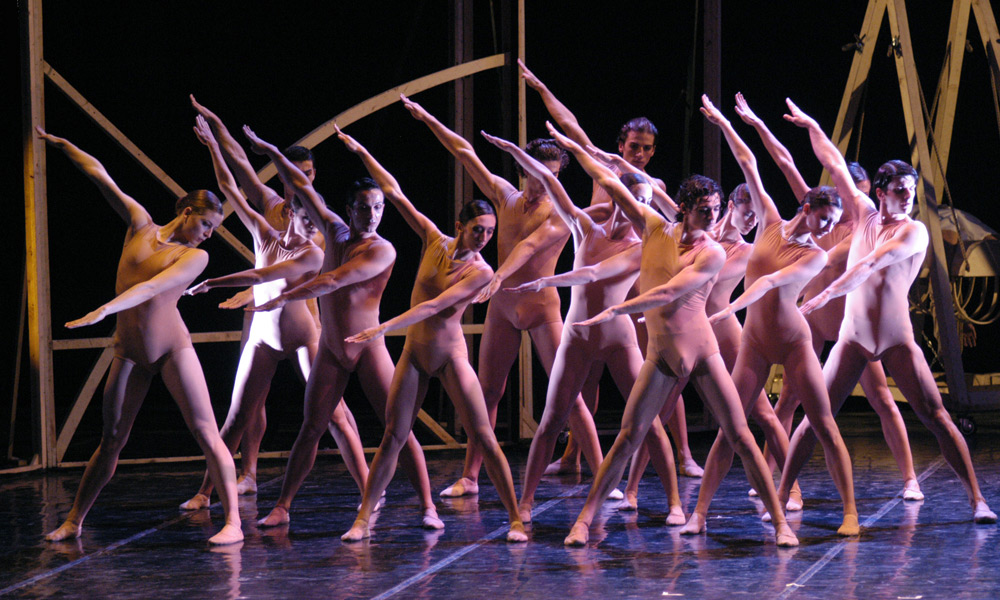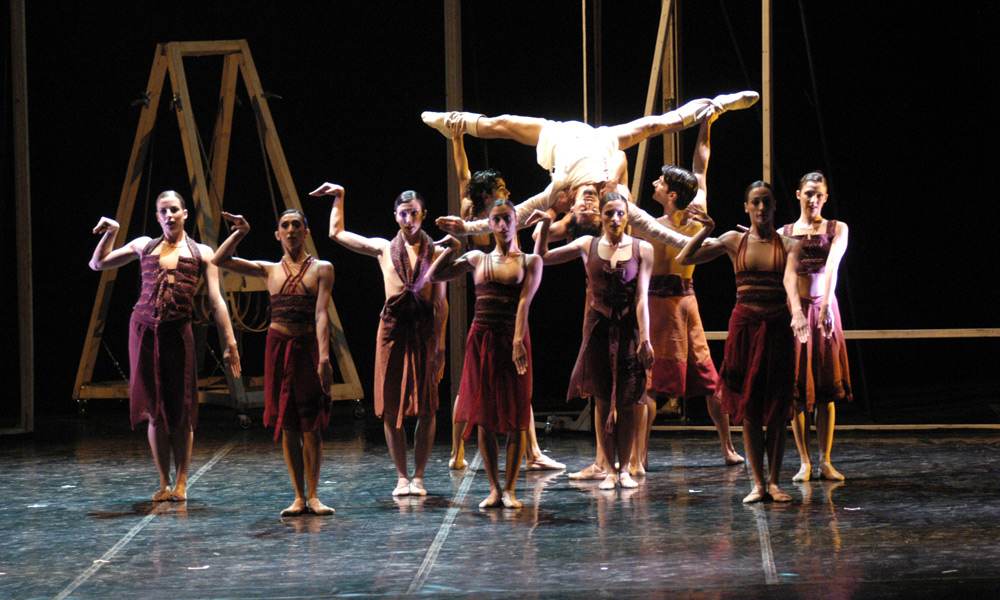Director’s notes
I wanted to concentrate on the aspects of this character that influenced me the most, by creating a story that would not focus on the well-known events, heritage of a commonly shared memory, such as the windmills episode, but on the emotional aspect linked to the rich imagination of the Knight. The events (or better, his feats) are just outlined and, instead of simply narrating the facts, reveal the strength of Don Quixote and his trusty companion Sancho’s spirit, strongly intertwined in embarking a real and surreal journey together. Inside the magic box made of imaginary and shimmering colours, Don Quixote, with his volatile thoughts, livens up the reality, transforming it into the beauty and poetry of the most noble values, those of the knightly world in which he believes. Until the reality, stripped of any colour or the necessity of being itself, prevails, by marginalising the Fantasy. In the second act of the opera, the same reality that incredulously witnessed, surprised by such imaginative strength, ends up by laughing at this pure, unadulterated man, who is incapable of seeing what he is, believing in everything he sees and hears. Such a raw setting, devoid of any poetry, will kill Don Quixote in order to free the legend, in the lucky necessity that belongs to the reality of distinguishing oneself. Such legend is not only made by pure idealism and its pursuit, but, in my opinion, also by all those ingredients that are contained in the masculinity, such as the strength of imagination, the bravery in fighting with and against ourselves and everything else; such fight does not fear any physicality, but chases it as the only possible fight. Again, the value of solidarity, which is pursued with the action and the homage that one wants to offer to the idolised woman, purified in the poetry of a thought. To me, all of these and many more of the nuances linked to the fantasy universe of which he is the spokesperson make Don Quixote the Knight of Fantasy and, even more tangibly, the lost male archetype. Milena Zullo
Credits
with the extraordinary participation of Andrè De La Roche,
choreography and story
Milena Zullo
music
Antonio Vivaldi
original music
Marco Schiavoni
cooperation to the opera piece
Silvia Poletti
scenes
Fabiana Yvonne Lugli, Stefano Silva
costumes
Silvia Califano
lighting designer
Carlo Cerri
maître de ballet / choreography assistant
Piero Rocchetti

